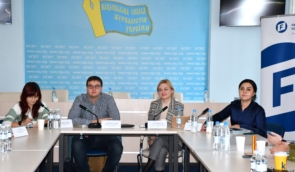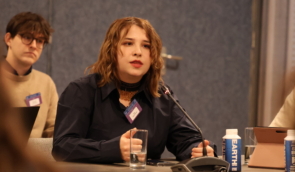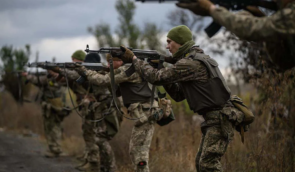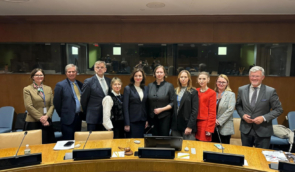Remembering people living under occupation: ZMINA took part in the pre-event for the Ukraine Recovery Conference
On 2 April 2025, the event “Strengthening Ukraine’s Human Capital Development for Recovery and Rebuilding: Ensuring Effective Labour Market and Socio-Economic Integration” was held in Kyiv. The event was organised by the Ukrainian Donor Platform in cooperation with Italy, a co-organiser of the Ukraine Recovery Conference (URC) 2025, with the participation of representatives of Ukrainian ministries, international partners and civil society.
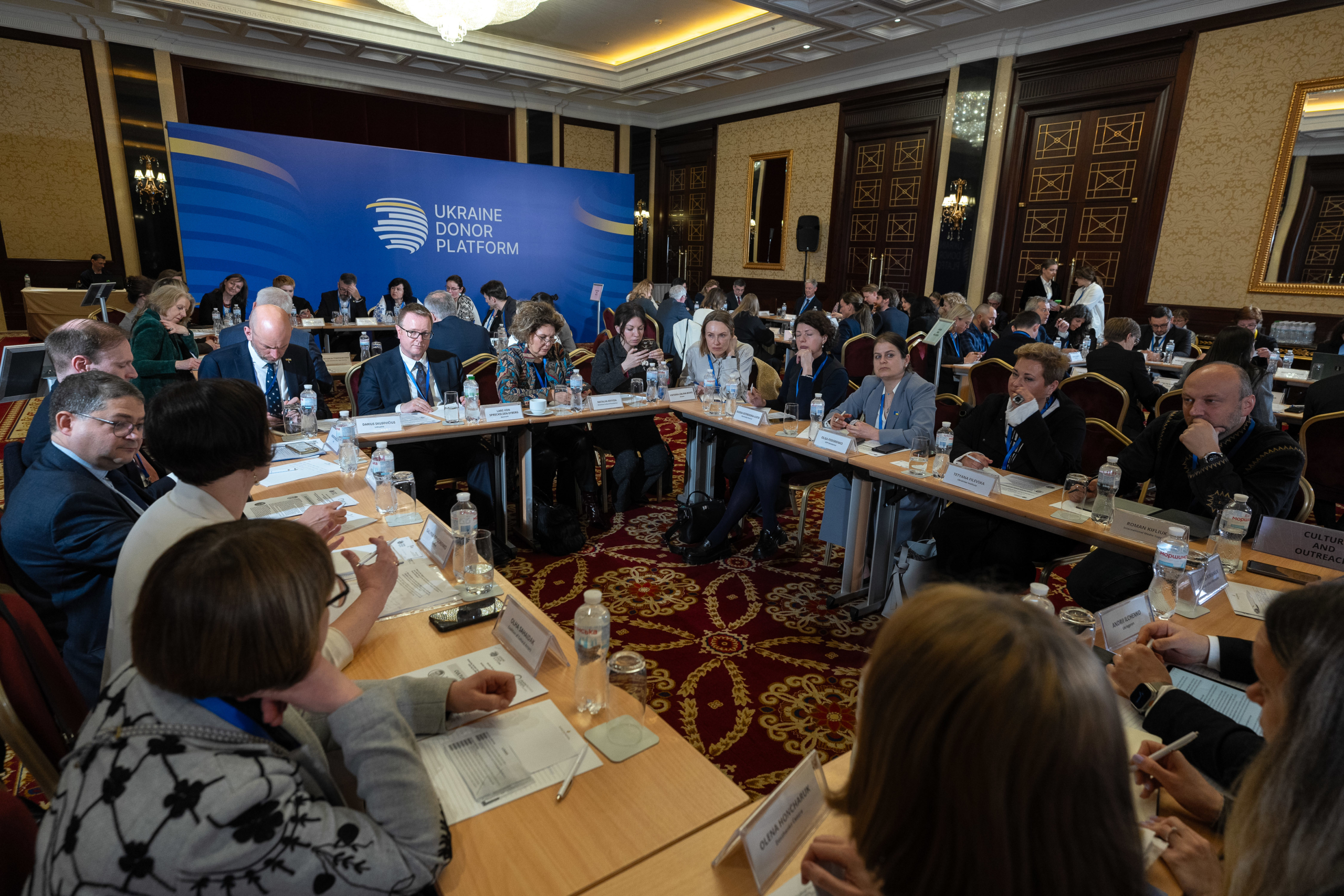
The event, held in the World Café format, was the third civil society meeting within the Ukrainian Donor Platform and a preparatory event for the human capital dimension “On the road to URC 2025”. The discussions focused on six thematic areas of human capital development: work and inclusion, education and skills, health and social protection, entrepreneurship and innovation, culture and inclusion, and unity and reconciliation.
The event aimed to collect proposals from Ukrainian civil society organisations on key challenges and solutions in human capital development. These developments will be considered in preparing the content of the Human Capital thematic area at the URC 2025 conference, which is scheduled for 10-11 July in Rome.
Speaking at the event, Tetiana Pechonchyk, Head of the Board of the Human Rights Centre ZMINA, said that focusing on human rights, justice, and the rule of law is essential in restoring and rebuilding Ukraine, as it makes the country more attractive for return.
However, according to her, there is a large group of Ukrainian citizens who are deprived of a voice and subjectivity, who are not mentioned when it comes to rebuilding the country, namely residents of the occupied territories, who, according to various estimates, may number up to 5 million people.
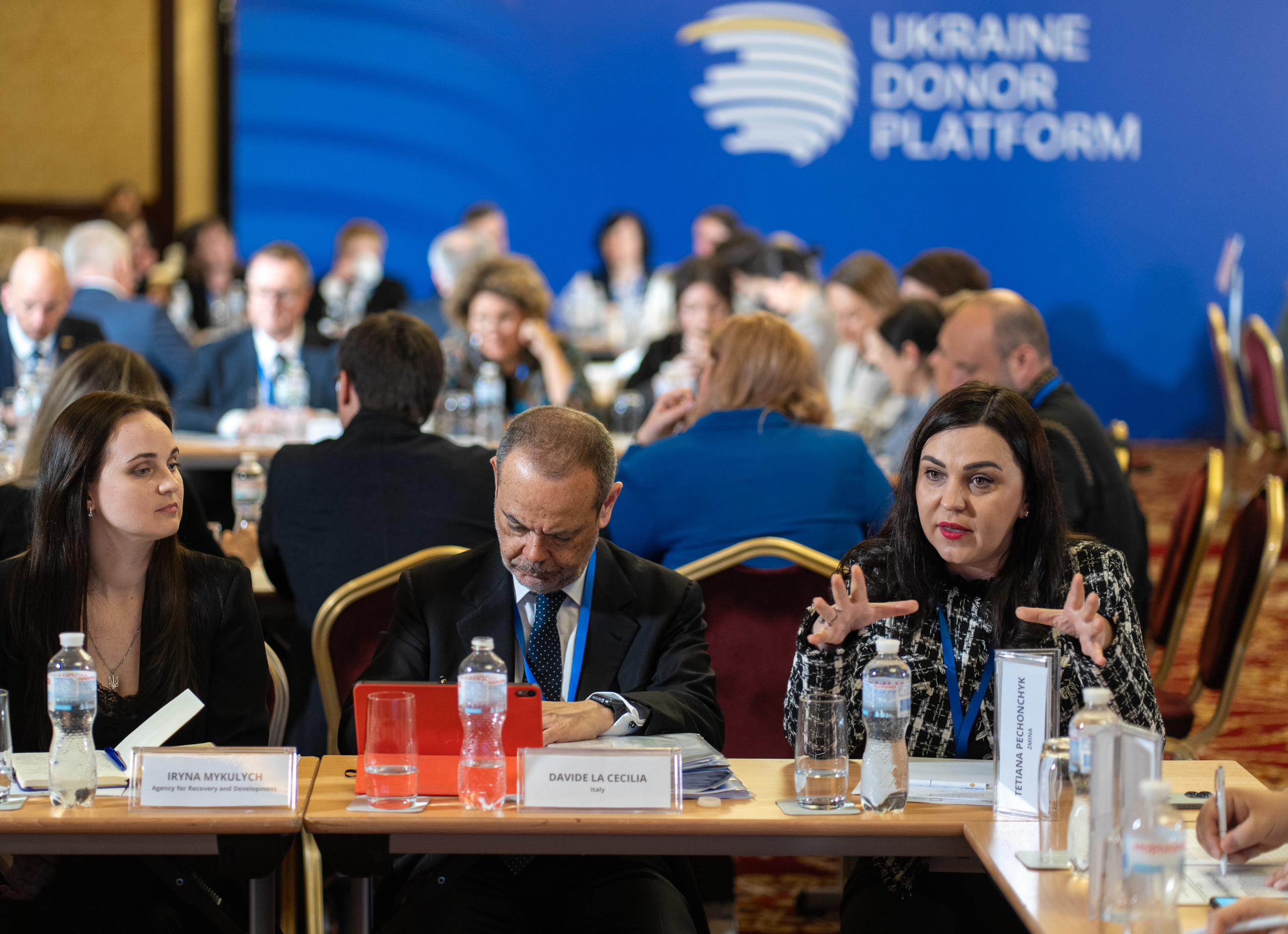
“A fifth of Ukraine’s territory is occupied and will remain occupied for some time, but there is currently no strategy at the state level for working with people who remain in occupation, and the Ministry of Reintegration has been liquidated. However, in order to rebuild our country, we are interested in maintaining ties with people in occupation, facilitating the departure to the government-controlled territory of those specialists who are useful for raising and stimulating the economy, and encouraging young people from the occupied territories to move here. We should consider as our potential not only those who have left and think about their return, but also see this potential in the residents of the occupied territories,” Pechonchyk said.
Pechonchyk reminded that there are still many barriers to maintaining ties with people in the occupation, including a complicated procedure for recognising civil status acts, including birth and death certificates of Ukrainian citizens in the occupation, the absence of a procedure for confirming educational attainment for young people from the occupied territories to continue their studies in Ukrainian universities and inadequate punishments for charges of collaboration, etc.
She called on the government and civil society to work together to address these issues and to engage people from the occupied territories in the process of rebuilding Ukraine.
Photos provided by the event organisers.
If you have found a spelling error, please, notify us by selecting that text and pressing Ctrl+Enter.


